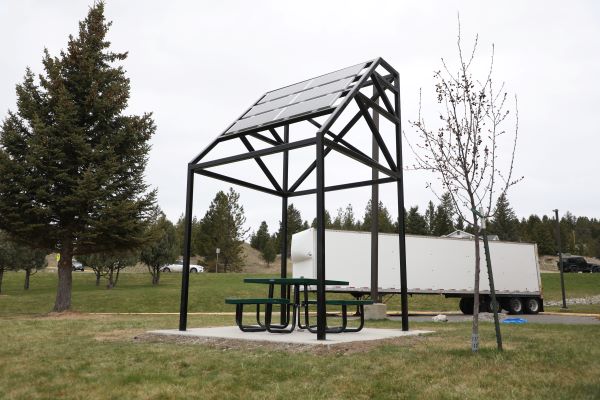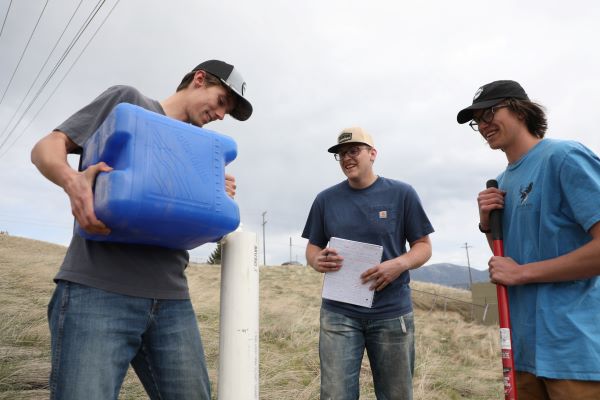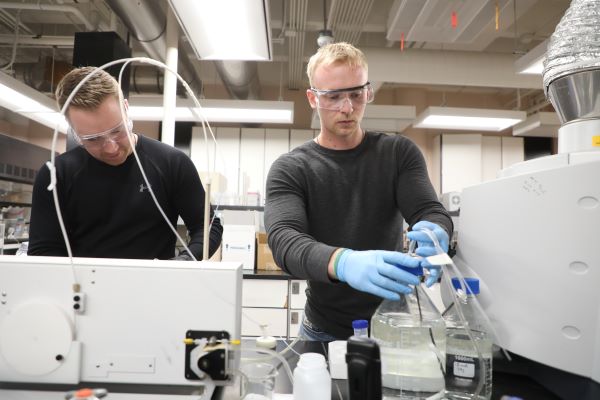Montana Tech Department of Environmental Engineering



Welcome!
Montana Tech's Department of Environmental Engineering features a broad, student-focused curriculum that includes pollution prevention, sustainability, water and air quality, waste water treatment, and land and soil restoration. Montana Tech is one of the only environmental engineering degree programs to offer air quality engineering courses at the undergraduate level. In addition, the Department offers an M.S. in Environmental Engineering.
Montana Tech is one of the only environmental engineering degree programs to offer air quality engineering courses at the undergraduate level.
This rapidly growing interdisciplinary field allows students to pursue their area of environmental interest.

A new solar demonstration project has been installed on the Montana Tech campus through the collaboration of students in Dr. Robin Bullock’s senior design course and a metals fabrication class at Highlands College.

A team of students from Montana Technological University have designed a stormwater system for the parking lot and grassy area upgradient of the Motel 6 in Butte that will incorporate native plants, and improve the infrastructure’s resilience to climate change.

Montana Tech students are designing a system to separate lithium from wastewater produced by drilling petroleum and natural gas wells.
Connect with our faculty and explore their research interests and areas of expertise.
The Bachelor of Science degree in Environmental Engineering is accredited by the Engineering Accreditation Commission (EAC) of ABET.
Montana Tech has multiple design teams that take part in international and local competition.
Need someone to talk to about Environmental Engineering? Contact one of our alumni.
We are currently recruiting members to our Advisory Board.
Meet the industry professionals who advise our programs.
We'll answer your questions and help you get started.
Professor and Department Head
406-496-4448
rnagisetty@mtech.edu